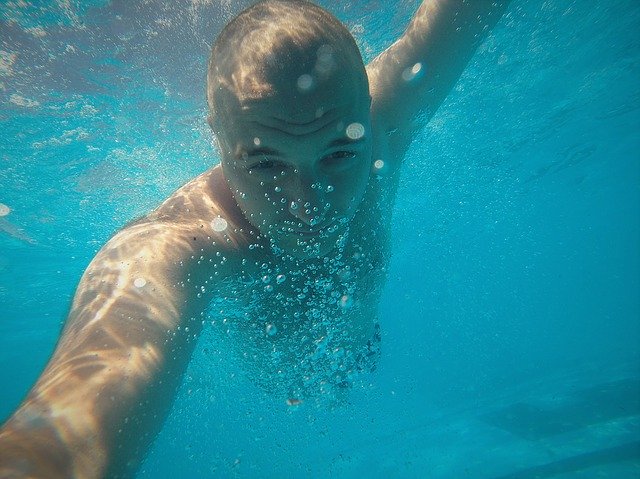A lot of English activity verbs use go and the -ing gerund. These are activities that you have to leave the house to do, so most examples are sports and outdoors activities.
- go running
- go jogging
- go camping
- go bike riding
- go horseback riding
- go apple/pumpkin/strawberry picking
- go hiking
- go hunting
- go fishing
- go rock climbing
- go bungee jumping
- go skydiving
- go hang gliding
- go zip lining
- go swimming
- go boating
- go sailing
- go kayaking
- go white water rafting
- go water skiing
- go jet skiing
- go snorkeling
- go scuba diving
- go surfing
- go crabbing
- go skiing
- go ice skating
- go snow shoeing
- go bowling
- go trick-or-treating
- go shopping
- go dancing
- go sightseeing
Go + ing is used
with activities, so it doesn’t sound natural to use it with all verbs.
For instance, you can go shopping, since shopping is an entire activity
(getting into your car, going to the store, looking at different things you
might want to buy, trying on clothes, etc.) A verb like buy, though, is
not an activity – it’s just the simple act of paying for something. You
wouldn’t say go out buying.
Go, went, have gone X-ing
The -ing form of the verb is called the gerund. The gerund doesn’t change in these go expressions (or anywhere else), but go changes depending on tense and subject:
- Let’s go surfing this weekend.
- She goes camping every fall.
- Bill and Sam are going running early tomorrow morning.
- The kids went trick-or-treating for Halloween.
- I haven’t gone shopping for a new car yet.
- We would go apple picking tomorrow, but it’s supposed to rain.
With or Without Go
All of the verbs used with go are normal verbs that you can also use without go:
- The kids are going swimming.
- The kids are swimming.
- We go hiking every weekend.
- We hike ever weekend.
Sometimes these pairs can be used interchangeably, in the same situations. But not always.
Going somewhere?
The simple verb refers to an action, and go + ing refers to the entire activity of going somewhere in order to do something. Sometimes these are interchangeable. For example, you and your friend are talking on the phone about your weekend plans. Your friend asks you “what are you doing this Saturday?” In this case, it’s natural for you to answer both:
- I’m going swimming this Saturday.
- I’m swimming this Saturday.
But now imagine that you’re in the pool, and your cellphone rings. You swim to the side and answer it, and your friend asks “what are you doing right now?” The most natural answer is:
- I’m swimming right now.
- not:
I’m going swimming right now.
On the other hand, imagine that you’re walking to the beach. You’re still a few blocks from the water when your cellphone rings. You answer it and your friend asks “what are you doing right now?” Here you could answer:
- I’m going swimming right now.
- not:
I’m swimming right now.
Action or Activity?
The simple verbs refer to the action itself. Swim refers to moving through the water, sail refers to being in a sailboat and moving across the top of the water. Go + ing on the other hand refers to activities or hobbies or experiences. Go swimming and go sailing are things that you do for fun, as a planned activity.
If you’re just referring to the action, not as a planned activity, use the simple verb without go.
- Many immigrants sailed across the Atlantic to come to the United States.
Here, it would be bizarre to say that immigrants went sailing across the Atlantic. They weren’t enjoying a weekend afternoon on a boat, but rather sailing as a means to get somewhere.
- Sharks swim up to 35 miles per hour.
And here, it would be bizarre to say that sharks go swimming. When we talk about sharks swimming, we’re just referring to the action of moving through the water.
Go out to do something
You’ll also hear people use go out to do when talking about their plans.
- Jenn’s going out to run.
- We went out to eat last night at a great new Indonesian place.
- I’m going out to buy a new pair of shoes.
Here, out simply means “not in my home” or “not in the house/apartment” and the to do phrase is just a regular infinitive of purpose. So you can use it with all sorts of verbs, including ones that aren’t activities and are instead simple actions.
Go for a…
Many common action verbs are also nouns: a run, a jog, a drive, a hike, a swim, etc. With these verbs, you can say go for a X or go out/to the beach/to the woods for a X.
- I went for a walk this morning.
- They’re going to the lake for a swim this weekend.
- Let’s go for a drive in the country.
Learn English with the Language Garage!
If you’re interested in ESL/EFL lessons, please check out our English courses. We have private lessons, lessons for you and a friend or colleague, and convenient drop-in sessions to help you practice specific topics or grammar points. Or see our other posts on English grammar, vocabulary, and more.
Image by Vigan Hajdari from Pixabay.




